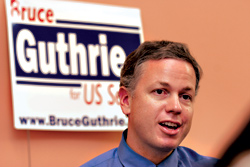A NEW ANALYSIS of police records confirms that African Americans represent well more than half of those arrested in serious drug busts in Seattle. But a disputed court order is preventing release of the information, which was compiled for a series of drug cases wending through King County Superior Court. Neither the King County Prosecuting Attorney’s Office nor the Seattle Police Department wants the public to have access to the statistics, which are based on 30,000 pages of arrest records documents that any member of the public could otherwise obtain through a state public-records request.
“Our position is, ‘Let light shine,’ while theirs is, ‘This is secret,'” says Lisa Daugaard, supervisor of the Racial Disparity Project with the Defenders Association, which represents indigent defendants and is representing defendants in the drug cases. She contends that the public and policymakers have a right to know whom SPD arrests for drug crimes and whether police disproportionately target racial minorities. Legal experts contacted by Seattle Weekly agreed. “This is classic data the public should have available to it,” says John Strait, an associate law professor at Seattle University. Although the records themselves would be subject to release under the state Open Public Records Act, the intrinsic value of the information is derived from the Defenders Association’s laborious compilation of the data the documents contain.
Tod Bergstrom, a King County senior deputy prosecuting attorney, says Daugaard cannot release the statistical findings because the records on which they are based were gathered through the legal discovery process and are controlled by an order issued by Superior Court Judge Richard Jones. SPD agrees, according to Steve Larson, an attorney with the Stafford, Frey, Cooper law firm that is representing the department in the case. Jones is scheduled to hold a hearing on the matter on Monday, Nov. 10.
Over the years, Daugaard and other lawyers have noticed that many of those arrested for drug violations in the city were African American, even though, according to the 2000 Census, only 8 percent of Seattle’s population is black. In 2001, Harvard University’s John F. Kennedy School of Government released a study of drug enforcement by SPD that confirmed those suspicions. According to the Harvard study, 57 percent of drug arrests in 1999 in Seattle involved African Americans.
THE DEFENDERS Association decided to go Harvard one better, proposing to the court that it consolidate 19 criminal drug cases and test the theory that Seattle police target a disproportionate number of African Americans for arrest. The only problem was that SPD didn’t track its arrests by race, even though race is indicated on arrest and incident reports. So the court allowed the Defenders Association to obtain, under a court protective order, 11,000 records for non-marijuana drug arrests in the city from January 1999 to April 2001. Harvard had reviewed a much smaller data set, and the idea was to establish a scientifically sound analysis that could later be used as evidence in the group case. Information on the arrest records was plugged into a database, which was reviewed this year by Katherine Beckett, a University of Washington sociologist who is writing a report about the data.
SO WHAT PERCENTAGE of drug arrests in Seattle involve African Americans? Daugaard, citing the court order, won’t specifically answer. She will say that the number is more than the 57 percent found in the Harvard study and that arrests of African Americans are exceptionally high across all classes of drugscrack cocaine, heroin, ecstasy, and methamphetamines. Her inability to say more frustrates public-records experts who reviewed the protective order, which seems to say in one section that the information can be released but in another section prohibits it. “I would say they have done a legal and factual analysis of public records,” says Judith Endejan, a media lawyer with the Seattle firm Graham & Dunn. “Any analysis is disclosable.” Says Michele Earl-Hubbard, a media lawyer with Davis, Wright, Tremaine, which represents Seattle Weekly: “The court is taking away the right of access. It’s only supposed to do that when it has determined there is good cause.”
DAUGAARD SAYS THERE is more to the battle over the arrest data than the public’s right to know how police are performing. “It’s difficult to know how policymakers such as the mayor or City Council could exercise oversight over Seattle police drug operations without having this type of information,” she says. “Having seen the data, I think this raises questions about a pervasive blindness in SPD to white offenders that appears institutional rather than individual.”
One former SPD official admitted as much in the 2001 Harvard report. “It is so much easier for the police to enforce drug laws in communities of colorsocially, economically, demographically, even topographically,” said former Seattle Police Chief Norm Stamper.







